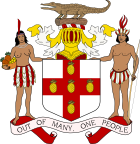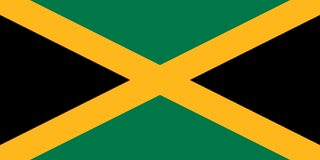
The Legislative Council, or upper house, is one of the two chambers of the Parliament of South Australia. Its central purpose is to act as a house of review for legislation passed through the lower house, the House of Assembly. It sits in Parliament House in the state capital, Adelaide.

The Western Australian Legislative Council is the upper house of the Parliament of Western Australia, a state of Australia. It is regarded as a house of review for legislation passed by the Legislative Assembly, the lower house. The two Houses of Parliament sit in Parliament House in the state capital, Perth.

The 2010 United States elections were held on Tuesday, November 2, 2010, in the middle of Democratic President Barack Obama's first term. During this midterm election year, all 435 seats in the United States House of Representatives and 37 of the 100 seats in the United States Senate were contested, along with 39 state and territorial governorships, 46 state legislatures, four territorial legislatures and numerous state and local offices. Approximately 82.5 million people voted.

The Anguillan general election was held on 15 February 2010. Seven seats in the Anguilla House of Assembly were contested in the election.

General elections were held for the Legislative Council in Nyasaland in August 1961. The result was a victory for the Malawi Congress Party, which won all 20 lower roll seats and two of the eight higher roll seats.

General elections were held in Kenya Colony on 2 April 1924. The elections were the first under a new Constitution which saw suffrage extended to Indians and Arabs, who were allotted five and one elected seat in the Legislative Council respectively, alongside the eleven elected seats for the white population, although appointed members were still the majority. Whilst all adult Indian residents were given the right to vote, in the Arab community only men literate in Arabic or Swahili and resident in the country for two years were enfranchised, as the community had requested that women not be given the right to vote. One member was appointed to represent the majority black population.

General elections were held in Kenya Colony on 12 February 1927.

General elections were held in Northern Rhodesia on 16 July 1932. Of the seven elected seats in the Legislative Council, four had only one candidate, who was elected unopposed; Herbert Goodhart in the Eastern constituency, John Brown in Midlands, Chad Norris in Northern and Thomas Henderson Murray in Southern. The only contested seats were the two in Livingstone and the one in Ndola.

General elections were held in Northern Rhodesia on 19 February 1954. The result was a victory for the Federal Party, which won 10 of the 12 elected European seats in the Legislative Council.

General elections were held in Northern Rhodesia on 20 March 1959, although voting did not take place in two constituencies until 9 April. The United Federal Party (UFP) was expected to win the elections, and did so by taking 13 of the 22 elected seats on the Legislative Council.

Legislative Council elections were held in Burma on 21 November 1922, the first in the country's history.

Legislative Council elections were held in Burma in November 1928. Despite expectations that pro-government candidates would win, the result was a victory for the opposition, which won 45 of the 80 elected seats. However, the People's Party, the largest opposition party, was unable to form a government. Instead, the pro-British Independent Party formed the government.

Elections to the Legislative Council were held in Burma on 17 November 1925. Under the terms of the dyarchy constitution, the Legislative Council of Burma was advisory to the British colonial governor, and had some direct authority over education, local government, public health, agriculture and forests. The Nationalist Party received the most votes, but was unable to form a government as the British authorities favoured the Independent Party, who formed a government led by Joseph Maung Gyi.

Elections to the Legislative Council were held for the first time in the Colony of Aden in 1955. However, only four of the Council's 18 seats were elected. Restrictions on suffrage were imposed linked to age, gender, property ownership and residency. With only around 5,000 people voting, the restrictions ensured that only loyalists to the government were elected. Following the elections there were protests over the suffrage limitations and calling for independence.

Elections to the Legislative Council were held in the Colony of Aden on 4 January 1959.
Elections to the Legislative Council were held in the Colony of Natal in September 1892. The initial result was a victory for the anti-responsible government party, which won 14 of the 24 seats. However, this was later overturned as four anti-responsible government members lost their seats after their election was annulled, and the by-elections were won by pro-responsible government candidates.

General elections were held for the first time in Nyasaland on 15 March 1956.

General elections were held in Nigeria for the first time on 20 September 1923. The Nigerian National Democratic Party (NNDP) won three of the four elected seats in the Legislative Council.

General elections were held in Northern Rhodesia on 29 September 1944.

The Legislative Council of Kenya (LegCo) was the legislature of Kenya between 1907 and 1963. It was modelled on the Westminster system. It began as a nominated, exclusively European institution and evolved into an electable legislature with universal suffrage. It was succeeded by the National Assembly in 1963.














